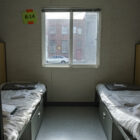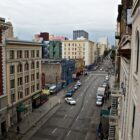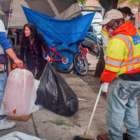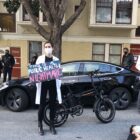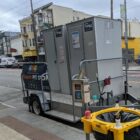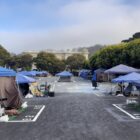Homelessness
San Francisco Rations Housing by Scoring Homeless People’s Trauma. By Design, Most Fail to Qualify.
Co-published with ProPublica.
Tabitha Davis had just lost twins in childbirth and was facing homelessness. The 23-year-old had slept on friends’ floors for the first seven months of her pregnancy, before being accepted to a temporary housing program for pregnant women. But with the loss of the twins, the housing program she’d applied to live in after giving birth — intended for families — was no longer an option.
A few weeks later, Davis was informed that the score she’d been given based on her answers to San Francisco’s “coordinated entry” questionnaire wasn’t high enough to qualify for permanent supportive housing. It was a devastating blow after an already traumatizing few months.

